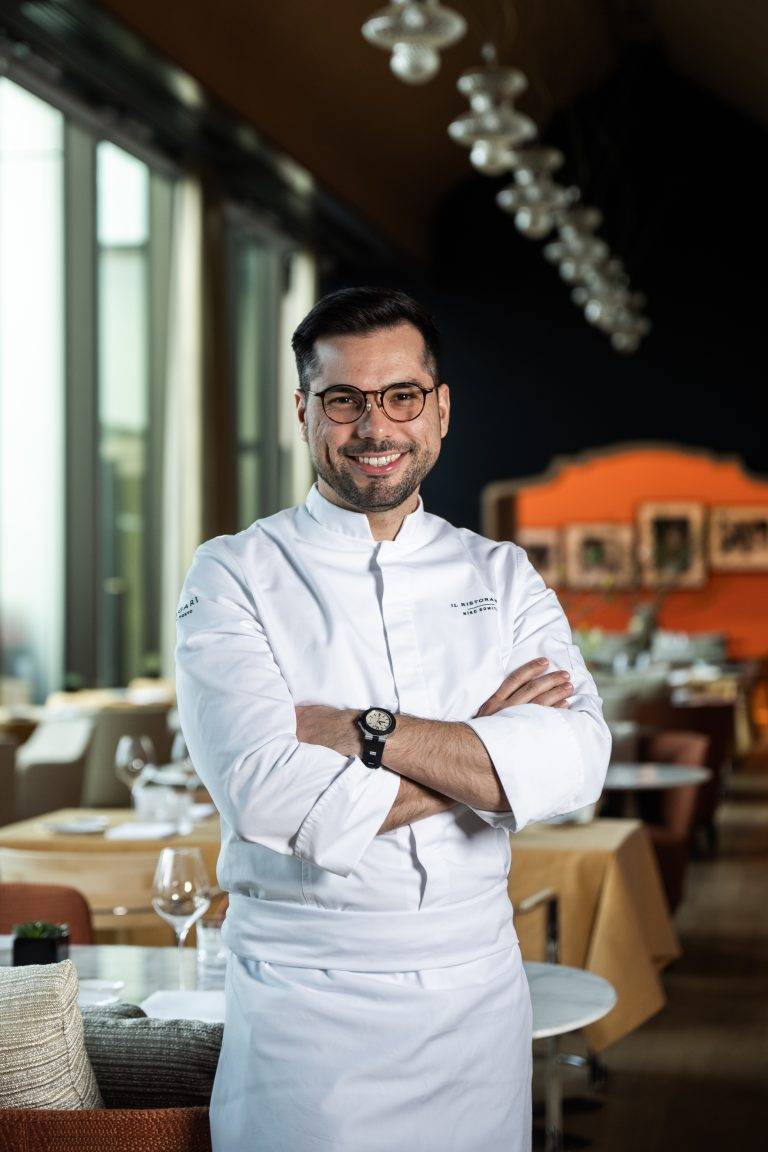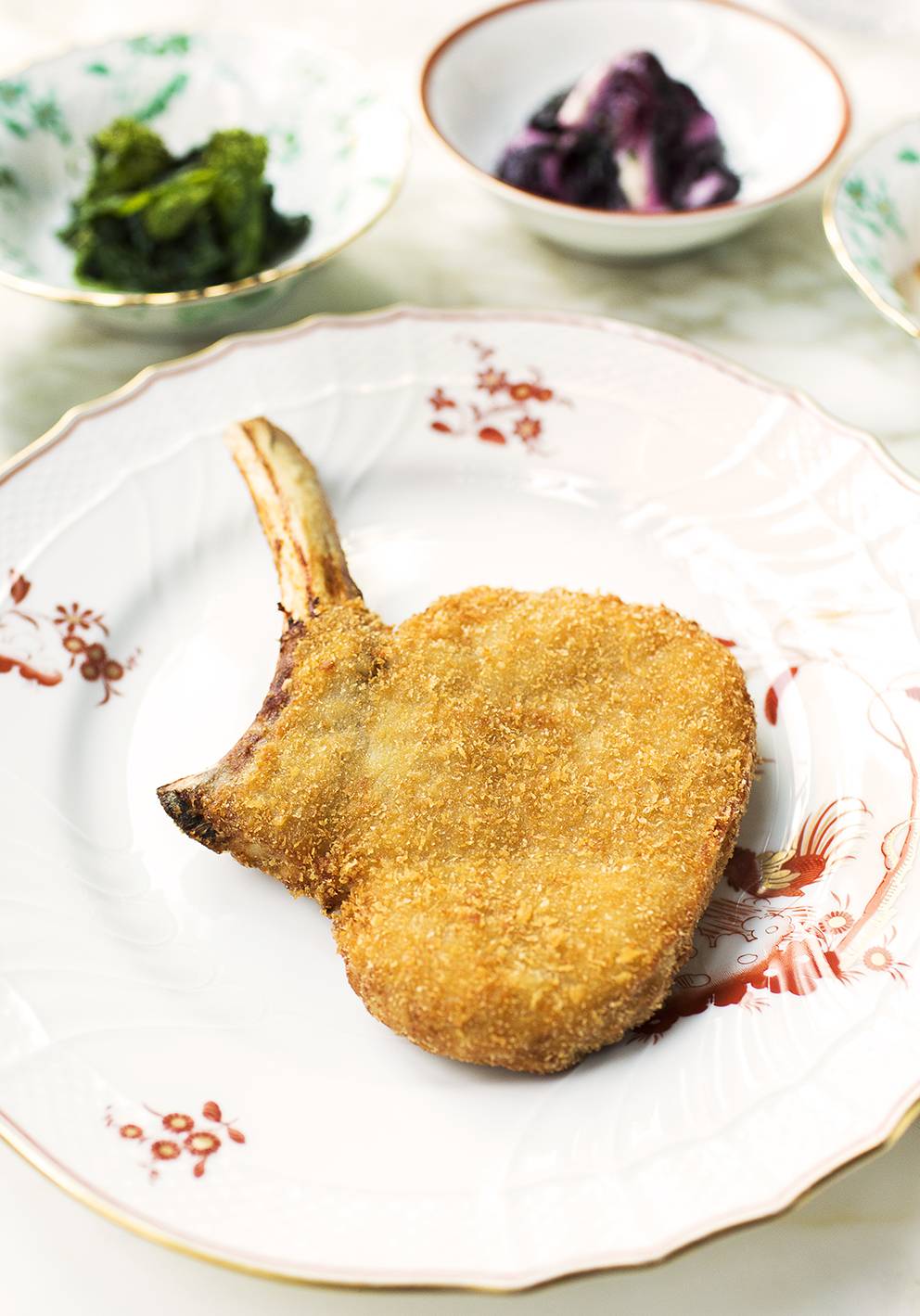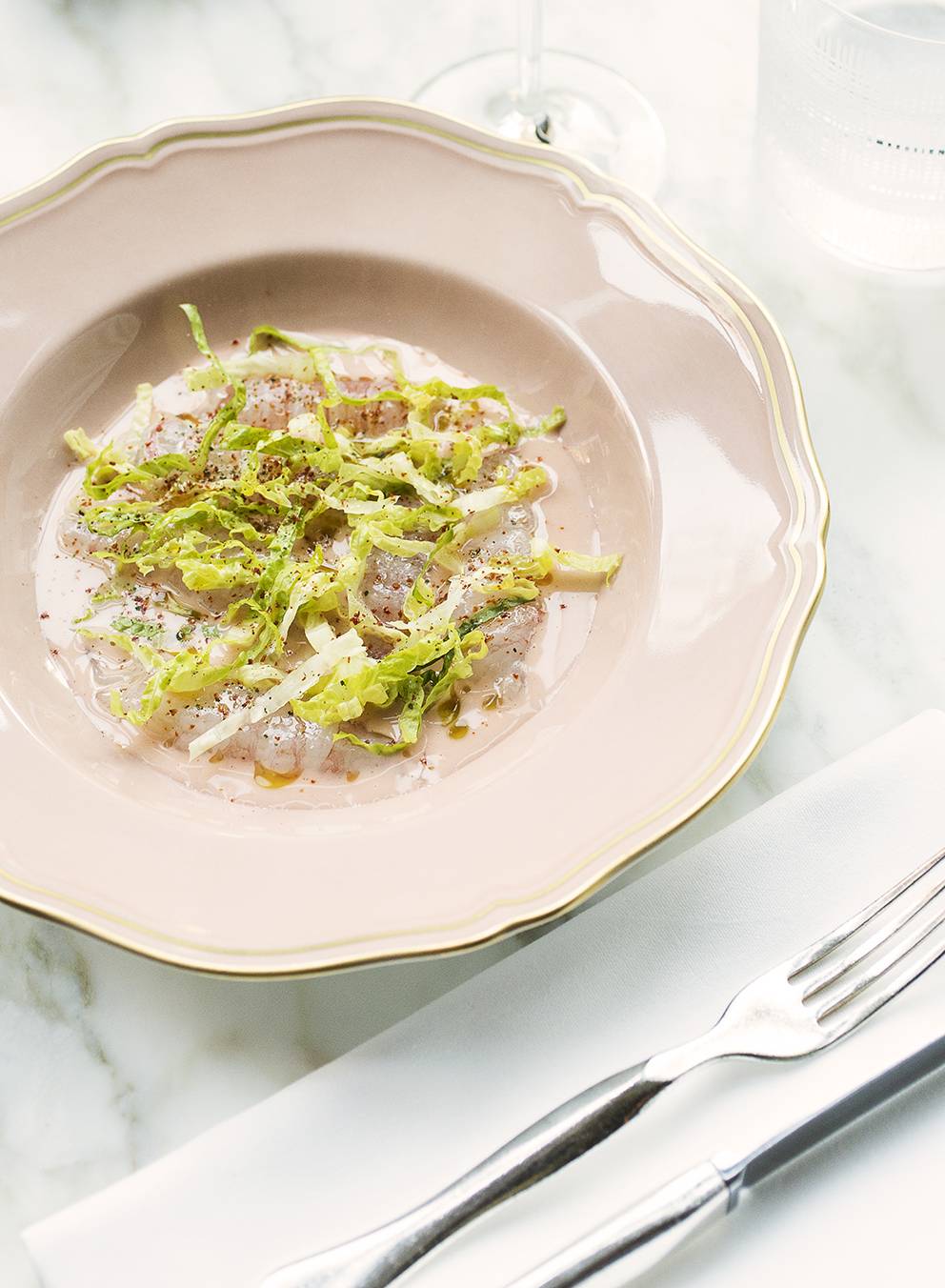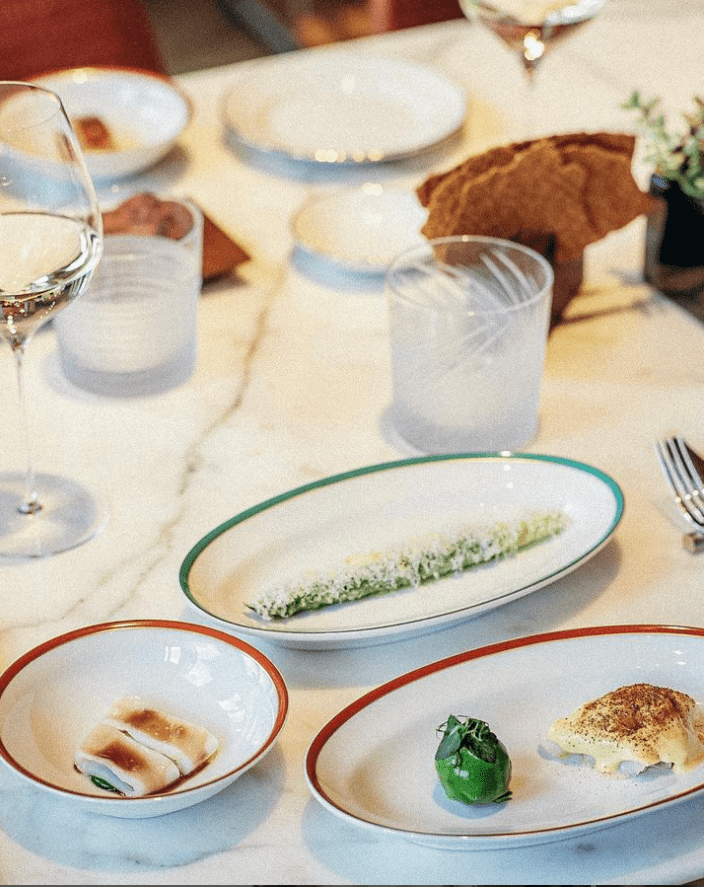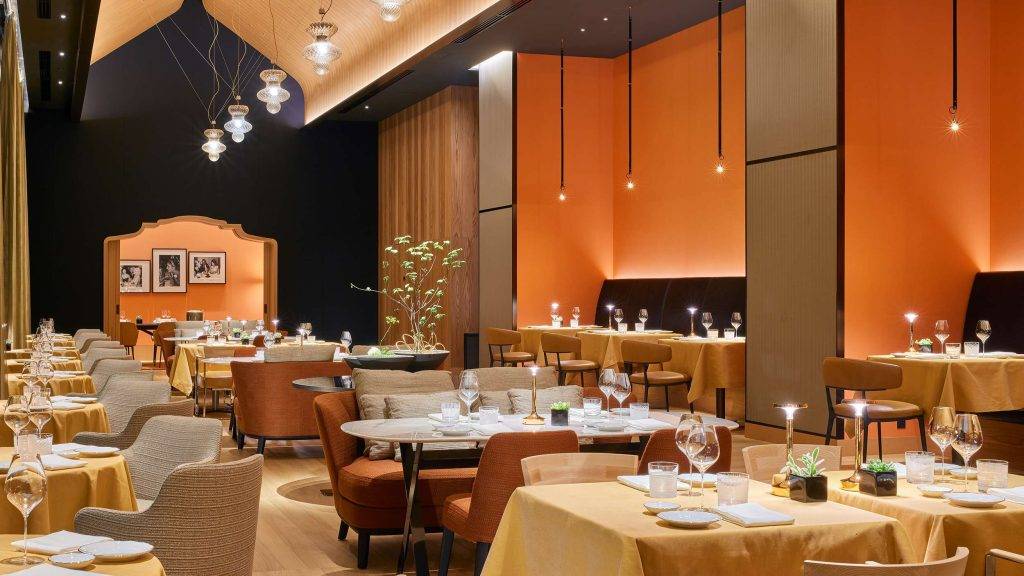Why did you choose to pursue a career as a chef? How did you get your start, and what steps led to your current position?
My mother was a very good cook and shared her passion for cooking with me. Besides that, both my parents worked, and I was often alone at home, so I started to cook for myself as a necessity. Then, I decided to choose it as a profession. I attended a cooking school and started my career: my first job was at Badrutt’s Palace, a historical 5-star hotel in St Moritz. All the experience I had in my career gave me the chance to learn many different aspects of this profession; probably the most important experiences in my career are:
- My first experience at Bulgari Hotel Milan, from 2009 to 2011, with Chef Elio Sironi (the restaurant has been run by Niko Romito since 2018), where I saw for the first time a contemporary cuisine restaurant in a luxury hotel.
- I spent 5 years at Park Hyatt’s VUN restaurant (now closed) with Chef Andrea Aprea, my first experience with such fine-dining cuisine. Here, the chef taught me the importance of millimetric precision and staying focused and organized.
- Il Ristorante – Niko Romito: Chef Niko Romito taught me to think outside the box, be creative with a few ingredients, and get the most from each product. His philosophy shaped my own vision.
What do you enjoy most about being a Chef?
What I enjoy the most is probably the idea of giving people emotions through the food I cook. The fact that they can live a good, happy moment thanks to my food makes me proud of my job.
What do you find most challenging about being a chef?
It definitely is a challenging job… One difficult aspect is that you always have to stay focused to perfectly manage the timing in the kitchen. Even after a full day of concentration, a few seconds of distraction can impact the whole experience of the guests. We need to always be very precise in everything we do. Another big challenge is to keep the team motivated, which is essential.
What awards have you/your kitchen won, and what role do you think this has on your process?
Il Ristorante – Niko Romito in Tokyo was awarded one Michelin star last December in the Michelin Guide Tokyo 2024. Il Ristorante – Niko Romito in Shanghai – where I was the chef before coming here to Tokyo – has had one Michelin star since 2021 and still holds it for the 4th consecutive year. To receive such an important acknowledgement as the star from the most prestigious guide in the world is a great emotion, and a profound great satisfaction, but also an invite to renew our determination and commitment to strive for excellence, to best represent Chef Niko Romito’s philosophy in the world.
What do you think makes a dish successful, and what role does creativity play in the process?
Of course, a dish has to be tasty, but to be really special, it needs to have a clear identity, evoke something to the guests, or remind them of some good memories.
Describe your culinary style. How has it developed over time to now, and what were the most memorable experiences on this journey?
My style is connected to my origin and current experience, of course. It’s modern Italian cuisine. Chef Niko Romito’s philosophy strongly influenced my idea of cuisine; he taught me how to create very powerful, unforgettable dishes focusing on very few ingredients, where the flavours are immediately recognizable to the guests.
What would you say is the main course of the menu at the restaurant? How does this course reflect the identity of the restaurant?
Cotoletta alla Milanese, which is one of the most iconic dishes in Lombardia, the region where I am from. It’s a well-known traditional Italian recipe, but Chef Niko developed an innovative cooking technique that makes it unique, so tasty, perfectly crispy outside, juicy inside, and very light.
What do you think makes a restaurant or menu successful? How does the menu reflect the needs or wants of the guests you cater to?
The identity and the consistency of the project. Our menu clearly shares our project’s philosophy with no need for storytelling. If they have been to Italy before, they will find some flavours that remind them about our country…
Your restaurant is part of the renowned Bulgari group. What does it mean to work as part of such a “global team”?
It’s a huge responsibility and an honour as well: we have to maintain the standards and represent Niko Romito’s idea of Italian cuisine. Our goal, I would say even our mission, is to present our true, authentic Italian culture. With our colleagues worldwide, we constantly communicate, exchange recipes and tips, and help each other.
We always create new dishes with Chef Niko Romito: we present our ideas to him, and we work together to create a new dish. He taught me the importance of memory when working with traditional recipes: when I think of a new dish, the inspiration comes from the memory of tastes and flavours that I try to recreate and improve, making it contemporary according to Niko Romito’s philosophy and techniques.
Last but not least, working for Bulgari also means being an expression of an extraordinary jewellery brand. You need to be aware of that, represent the brand, and meet people’s expectations.
How does your restaurant represent and stand unique within this group?
Here in Tokyo, Japan, we have the opportunity to have a very wide range of top-quality local and imported products. Also, the design of the restaurant and the view are spectacular!
What are your most indispensable ingredients?
Extra Virgin Olive Oil!
What is your least favourite ingredient, and why?
Offal: I really don’t like the taste, smell, or texture…
What are a few of your current favourite dishes on the menu, and why?
I would probably say Antipasto all’Italiana: it’s a selection of different specialities from the North to the South of Italy, different bites that give you an idea of the biodiversity of our country, with well-known dishes, like the Vitello Tonnato and regional dishes yet to be discovered.
What do you think is special or makes the restaurant stand out in coparison to other venues?
People come here to experience authentic Italian food in a sophisticated but warm atmosphere, with the design combining Italian and Japanese culture.
What changes have you witnessed in the local and global food scene in recent years? How have you adapted to these changes as a chef, and how have they influenced the restaurant?
Social media is having an increasing impact on the food scene: fine dining has never been so appealing; people’s interests and experiences are growing exponentially. This is very positive for restaurants, but it can be hard sometimes when customers just follow a trend…
What kind of restaurants do you eat at and why?
I always look for restaurants where I can discover something new: new ingredients, new techniques, a new approach… I like learning while I’m eating!
To find out more about Il Ristorante – Niko Romito Tokyo and book, visit the links below…
Il Ristorante – Niko Romito Tokyo
Bulgari Hotel Tokyo
2-2-1 Yaesu
Chuo-ku Tokyo
104-0028
Japan
Web: bulgarihotels.com/tokyo
Tel: +81 3 6262 6624
Email: tokyo.h@bulgarihotels.com
Online reservations: tablecheck.com
Instagram: @bulgarinikoromitotokyo

